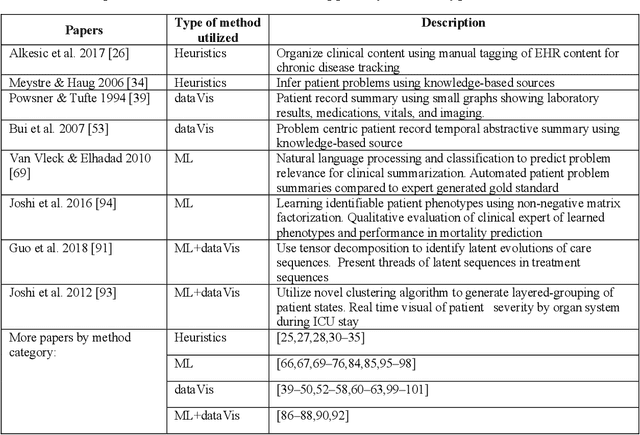Machine Learning and Visualization in Clinical Decision Support: Current State and Future Directions
Paper and Code
Jun 06, 2019



Deep learning, an area of machine learning, is set to revolutionize patient care. But it is not yet part of standard of care, especially when it comes to individual patient care. In fact, it is unclear to what extent data-driven techniques are being used to support clinical decision making (CDS). Heretofore, there has not been a review of ways in which research in machine learning and other types of data-driven techniques can contribute effectively to clinical care and the types of support they can bring to clinicians. In this paper, we consider ways in which two data driven domains - machine learning and data visualizations - can contribute to the next generation of clinical decision support systems. We review the literature regarding the ways heuristic knowledge, machine learning, and visualization are - and can be - applied to three types of CDS. There has been substantial research into the use of predictive modeling for alerts, however current CDS systems are not utilizing these methods. Approaches that leverage interactive visualizations and machine-learning inferences to organize and review patient data are gaining popularity but are still at the prototype stage and are not yet in use. CDS systems that could benefit from prescriptive machine learning (e.g., treatment recommendations for specific patients) have not yet been developed. We discuss potential reasons for the lack of deployment of data-driven methods in CDS and directions for future research.
 Add to Chrome
Add to Chrome Add to Firefox
Add to Firefox Add to Edge
Add to Edge